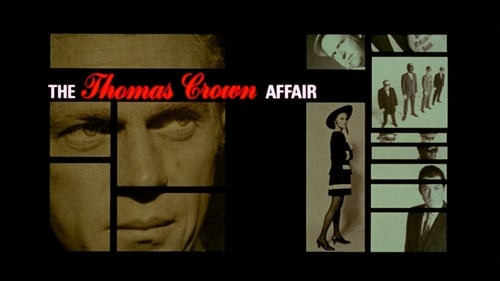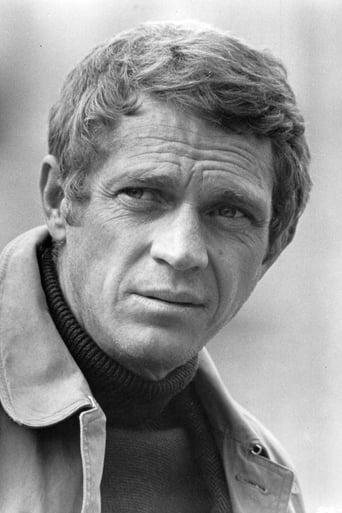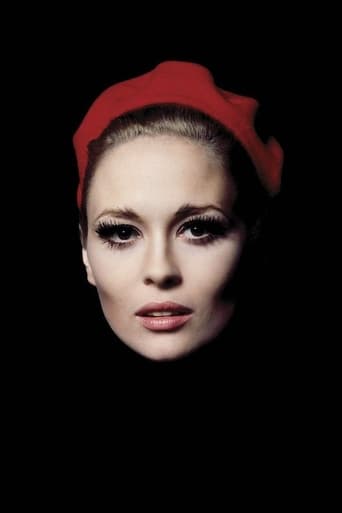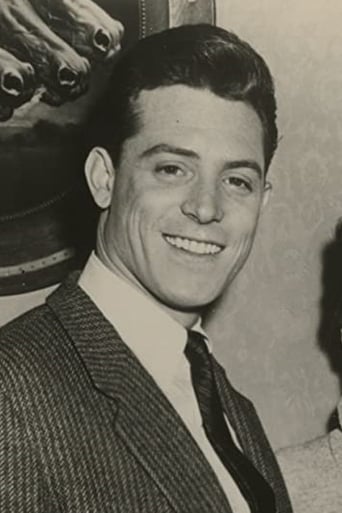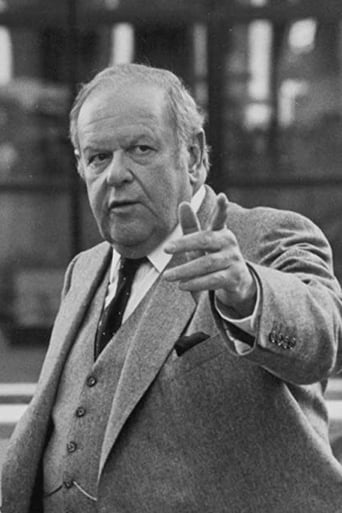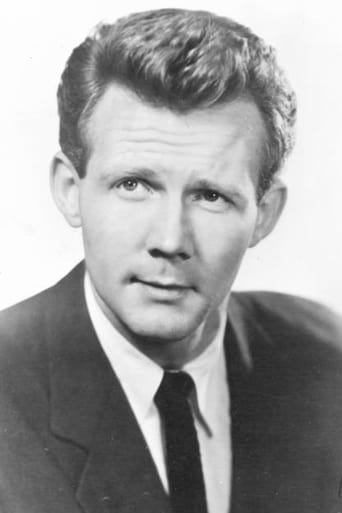Incannerax
What a waste of my time!!!
LouHomey
From my favorite movies..
Lidia Draper
Great example of an old-fashioned, pure-at-heart escapist event movie that doesn't pretend to be anything that it's not and has boat loads of fun being its own ludicrous self.
Darin
One of the film's great tricks is that, for a time, you think it will go down a rabbit hole of unrealistic glorification.
MissSimonetta
The Thomas Crown Affair is one of those films that just screams 1960s cool, from the fashions to the jazz score. Yet the film is not a case of nostalgic style over substance, but a bittersweet character study of McQueen and Dunaway's characters who use thrills as a substitute for meaning in their otherwise empty lives. While the film revels in glamorous vistas and "lifestyle porn," there are several scenes set in graveyards which foreshadow the movie's bittersweet conclusion. In the end, love doesn't conquer all and McQuen's escape is purely superficial; he remains imprisoned by his own hedonistic lifestyle and the viewer is left wondering if he'll ever be able to escape it.While some of the stylistic choices of the film have dated (the use of split-screen for one), I don't think they've dated as badly as other reviewers claim. Otherwise, the film has held up remarkably well, both of its time and yet transcending it, as many true classics have.
Albert Kaba
. . . with two legendary actors? Anyone who's under 40 who can't judge the film based on its own merit, has no sense of film.
sackville-77871
McQueen was totally miscast in this otherwise good film. He is inelegant, bouncy and fragmented. The famous chess scene would have been marvelously played by Lee Van Cleef who could use his face better than any actor in the sixties. He was also elegant, authoritative and would have played the part with more detachment & class. He would have been a perfect match for the gorgeous Faye Dunaway, a woman who could bring even the intense Van Cleef to the bedroom. Too bad they never worked together--what a match. Paul Burke was terrific and the camera work was excellent. The music, however, dated the film as did McQueen wearing those awful sneakers when he left the house at night. All told, McQueen was entirely too shallow to play a bored millionaire.
John austin
The King of Cool, Steve McQueen, plays a wealthy businessman and thrill seeker who masterminds a bank heist for no other reason than personal gratification. Faye Dunaway plays an investigator who is able to connect him to the crime and falls in love with him over the course of her investigation.It's a slick, high gloss production with A list stars and a big time director in Norm Jewison. It's an engrossing plot with some intriguing police procedure, well played by McQueen and Dunaway. 1960s films always look great to me because of the filming technique used at the time, although you wouldn't necessarily be wrong if you said this one looks pretty dated. Our preoccupation with high technology was starting to show even in 1968. There are numerous scenes of big punchcard computers, electronically controlled typewriters and the like, all cutting edge stuff back then but pretty antique looking now. McQueen cruises around the beach in an orange dune buggy, an iconic 1960's image if there ever was one. While this movie has a pretty familiar crime drama at its core, there are some defects. The only reason McQueen gets implicated in the crime is Dunaway's wild guess that the mastermind shipped the money to Geneva in numbered bank accounts. The police don't have a smidgen of evidence that this actually happened, but he fits that profile, making numerous trips there shortly after the robbery. However, several others fit the profile as well, and she only focuses on McQueen because she finds him personally attractive, and her female instinct tells her that he's the one. As the movie goes on, they really don't get any hard evidence connecting McQueen to the crime. McQueen plays it close to the vest and implicates himself only by his silence and evasiveness on the subject- he never says he did or didn't do it. Only near the end does he tire of the cat and mouse game and tell Dunaway to call in and make a deal with the cops. That's the closest thing to an admission we get. The motivation behind the crime is a little uncertain and a little thin. Thomas Crown is a rich businessman who wouldn't seem to have any incentive to pull off this particular crime. He's a thrill seeker-piloting gliders, playing polo, etc., so we're invited to make the inference that this is just another way for him to get off. There's also a subtle suggestion that after his divorce life is empty, and maybe he doesn't care if he risks everything with this. They do set up Thomas Crown as a rich man who's got some disdain for other rich men, but there's no indication that he's punishing the bank for something, and he's got no problem risking his henchmen or the innocent public to pull off his bank robbery thrill. One man does get shot in the robbery, so although you like his character, you could easily argue that Thomas Crown is not a very sympathetic good guy and maybe actually a bad guy. Good guy or bad, McQueen gets the last laugh as another robbery takes place while he leaves Dunaway high and dry and escapes to rich man's paradise on a private plane.


